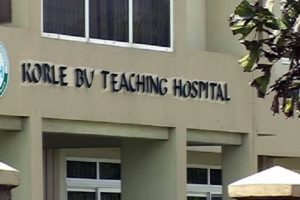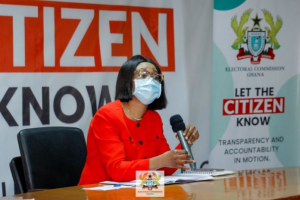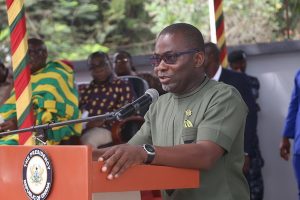Professor Kwesi Aning, the Director of the Faculty of Academic Affairs & Research at the Kofi Annan International Peacekeeping Training Centre, says the country’s National Security structure is problematic, and should be blamed for the recent incidents of attacks on citizens including journalists.
According to him, the National Security by law is not to have an operational unit with operatives deployed to conduct regular arrests and other duties traditionally undertaken by the police and other mandated security agencies.
He said the current structure makes the operatives unaccountable.
“The National Security, if we use the terminology, ought not to be an operational part of both the National Security Council and the National Security Secretariat,” he said.
He explained that, the law empowers the National Security Council so that “when an action is supposed to be taken, and it is a police action, then it is the IGP who does it, but if based on the assessment he feels that he will need a military, Customs or Immigration support, then all these subsidiary institutions come in to help.”
Professor Aning said the phenomenon is something that must be quickly tackled, noting that the recent events including the arrest and assault of Citi FM journalist, Caleb Kudah, is a product of the current National Security structure.
“This new culture of operatives of the Secretariat, armed and engaging in hands-on operational activity is something we need to look at. It is not what ought to be, and I think what you experienced at your offices is the reflection of the misunderstanding,” he said on The Point of View on Citi TV.
On Tuesday, May 11, 2021, operatives of National Security arrested and assaulted Citi FM‘s Caleb Kudah, after they found him filming abandoned state-funded vehicles near their office.
The operatives subsequently besieged the premises of Citi FM to arrest another journalist, Zoe Abu-Baidoo Addo because Caleb had sent the files to her via WhatsApp.
Both reporters were forced by the operatives to delete all multimedia materials on their phones.
The two are yet to be charged after their release on that same day.
The event has sparked a national conversation about the work of National Security operatives, as many individuals including other journalists, have shared harrowing stories of abuse, torture and the use of brute force while in their custody.
Professor Kwesi Aning said the Emile Short Commission set up to investigate the violence that marred the Ayawaso West Wuogon by-election in 2019 brought to light several of the lapses in the country’s security architecture, particularly the National Security operatives.
He said the country will be in huge danger if the operatives continue to work without proper oversight and accountability to anybody.
“What we have is an amorphous structure that allows these armed individuals to shift and move beneath the radar and therein lies the danger.”
He said a “robust intervention by Parliament” can help resolve the matter in a way that will tackle issues such as the recruitment, access to weapons and command structure of the national security operatives.”







